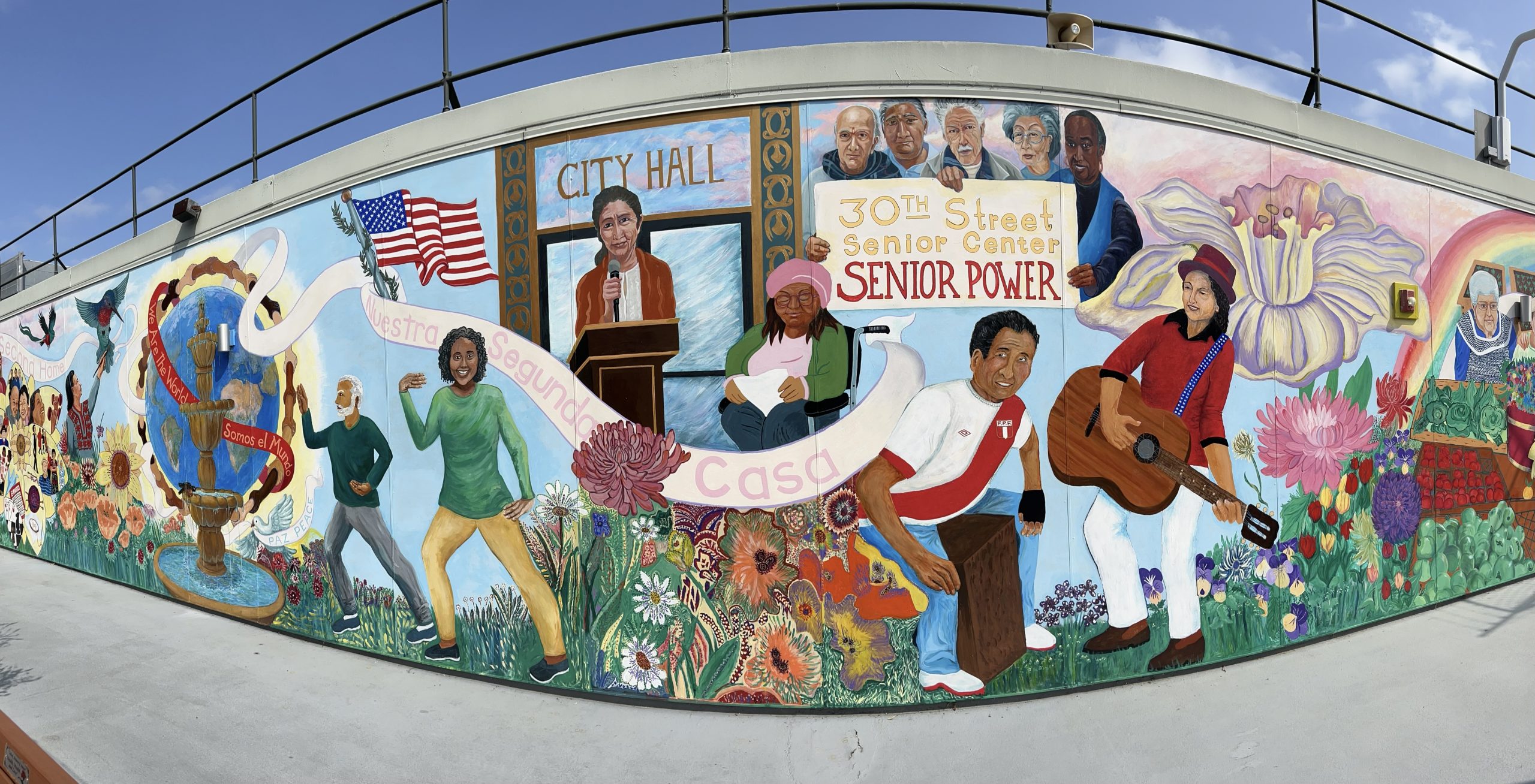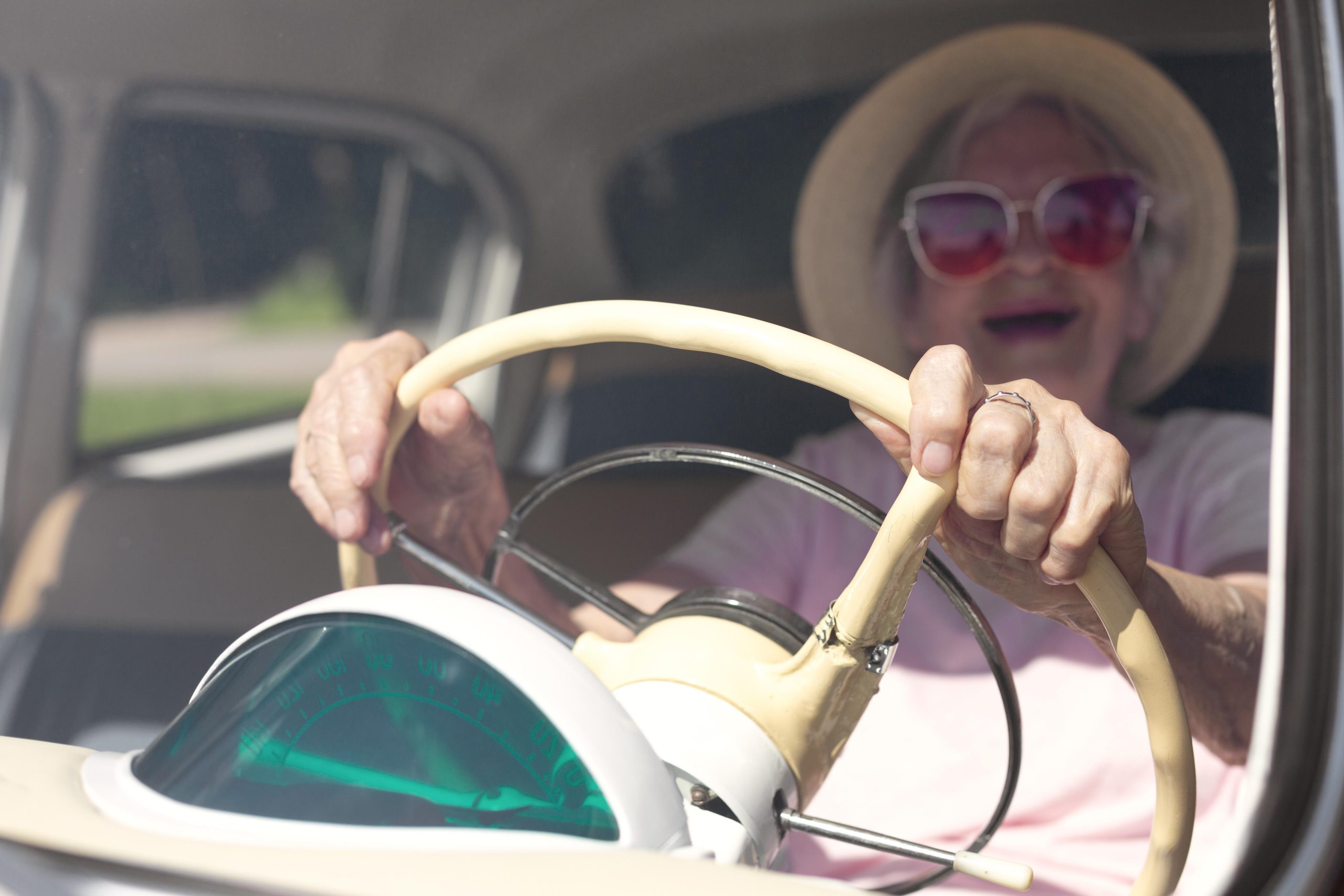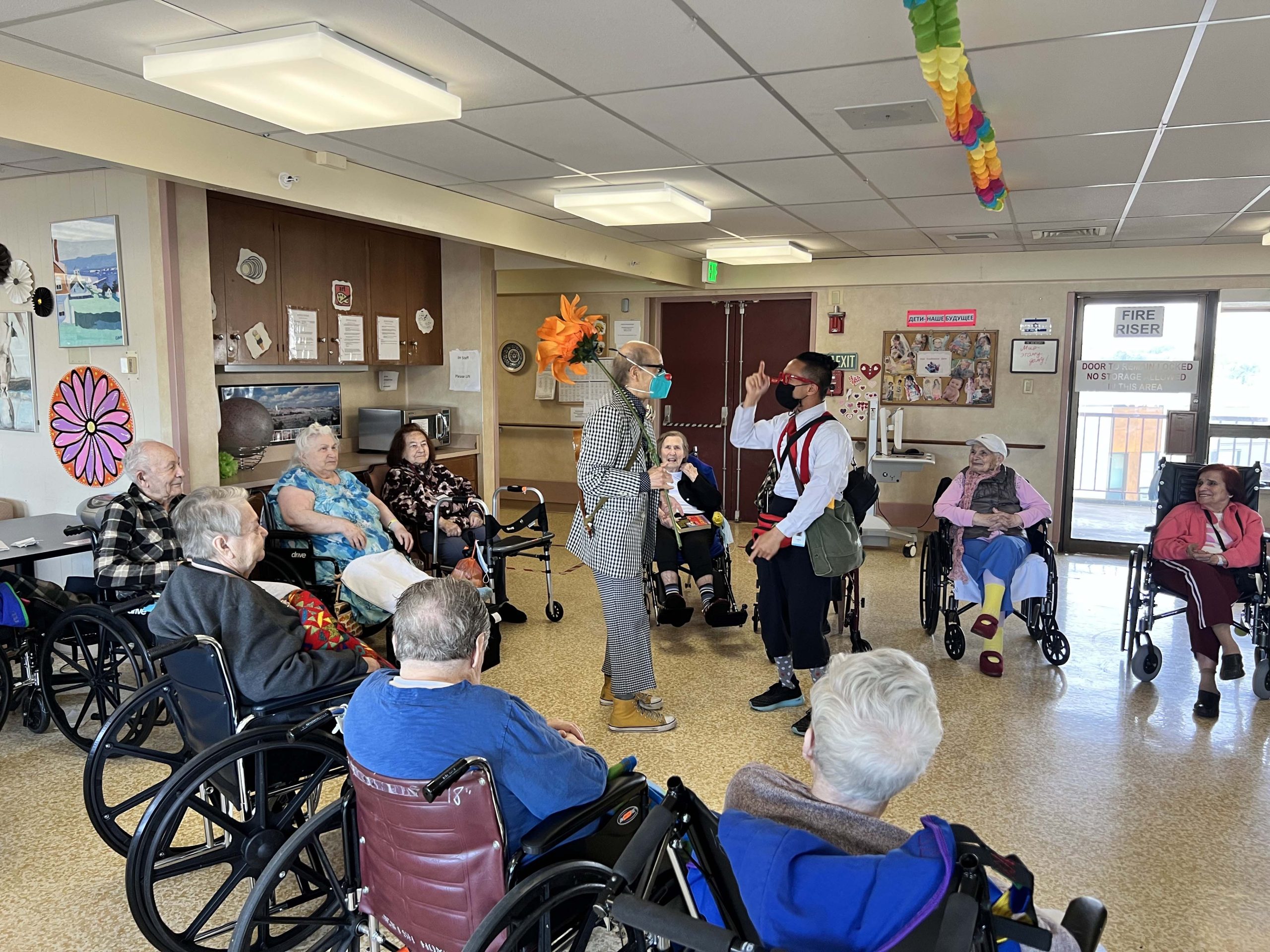Reframing Aging – ‘Older ≠ Lesser’: City embarks on effort to squash aging stereotypes
If it’s Wednesday, you’ll find 76-year-old Annie Biderman at her Spanish class –unless the retired nurse has decided to go birdwatching or spend extra time working out on the elliptical machine in the basement of her Glen Park home. If it’s Thursday, Susie Tyner, 73, is playing the steel drums in a band she organized, a highlight of a week that includes conducting an exercise class in San Francisco’s Bayview district.
Reframing Aging: Read the whole series.
Leadership never gets old: Retired youth counselor helped families overcome ‘disconnectedness’
Courage never gets old: A journey from drugs and destitution to role in Apple commercial
On Fridays, you’ll find 70-year-old Dennis O’Brien cutting hair and giving perms in his Noe Valley salon before organizing a dinner party or planning an outing to a movie or restaurant with friends.
These three San Franciscans exemplify a new generation of older adults who accept the inevitable aging process but have made a conscious decision to live full lives and explore avenues they’ve never trodden. “I’ve never had so much time to indulge my curiosity. I feel smarter and more on top of things in every way than in my whole life,” Biderman says.
San Francisco, like many American cities, is rapidly aging as the Baby Boomer generation hits retirement age. By 2030, nearly 30 percent of the city’s population will be 60 or older.
Aging well in San Francisco is not just a matter of having a positive attitude. Seniors have real problems, of course, from ridiculously expensive housing costs to health and mobility issues and the loneliness that can close in as children leave home and friends pass away.
A vision of your future self
There are also the barriers erected by ageism, a prejudice based on false assumptions about age. When directed at older adults, ageism reduces well-being; research has shown that it can even shorten lifespans. And perhaps most destructive is the tendency of many older adults to internalize the myths of ageism.
“It’s been said that thinking negatively about aging is actually prejudice against your own future self,” says Shireen McSpadden, executive director of San Francisco’s Department of Aging and Adult Services.
Because ageism is so destructive and so pervasive, a coalition of San Francisco city agencies and non-governmental organizations have launched a yearlong campaign called “Reframing Aging” that will serve to highlight available services and work to dispel the destructive myths of ageism. The campaign is a partnership between the Department of Aging and Adult Services, the Community Living Campaign, the Metta Fund and numerous community-based organizations.
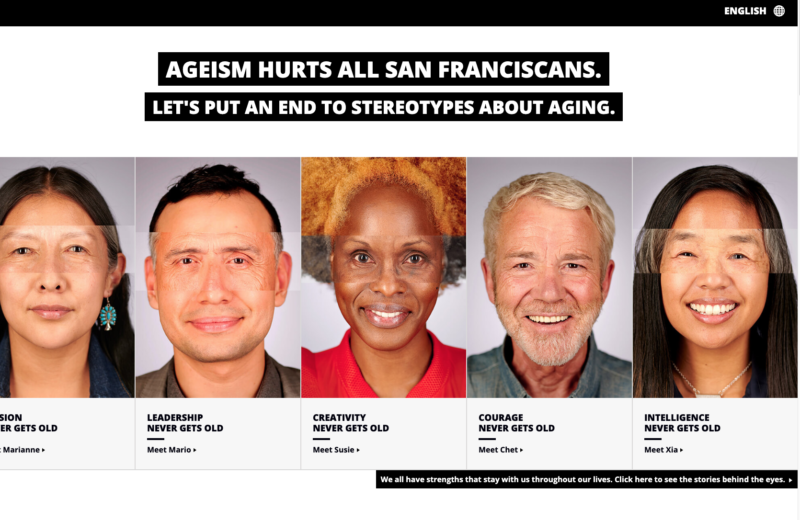
“We are aiming to raise awareness of ageism, dispel negative stereotypes of older adults, and connect residents with supportive services,” says Anna Karrer Manley, director of communications for the Metta Fund. “The long-term goal, of course, is to improve the public’s understanding of what aging means and the many ways that older people contribute to our society.”
‘Courage Never Gets Old’
Before long you’ll be seeing posters and fliers on Muni buses, lampposts, and other public places along with images and messages on social media – such as “Older ≠ Lesser,” Generosity Never Gets Old, Courage Never Gets Old, Innovation, Passion, etc. You’ll see pictures and biographies of five older San Franciscans whose lives and struggles illustrate the limitless potential of our seniors.
There will also be messaging – in several languages – aimed at younger San Franciscans as well. “We want to reach people who are 30 to 50 years old who through their families or their own experiences are already being affected by ageism,” says Kate Kuckro, deputy director of the Community Living Campaign.
The organizations contributing to the campaign offer a wide array of supportive services.
For example, On Lok’s 30th Street Senior Center, where Biderman is learning Spanish, serves 250 hot lunches six days a week, and sends hundreds more to the homes of homebound older adults around the city.
Located on the western edge of the Mission District, the center serves a clientele that is 47 percent Hispanic, while many others are members of the city’s varied minority communities, says David Byrd, grants manager for On Lok.
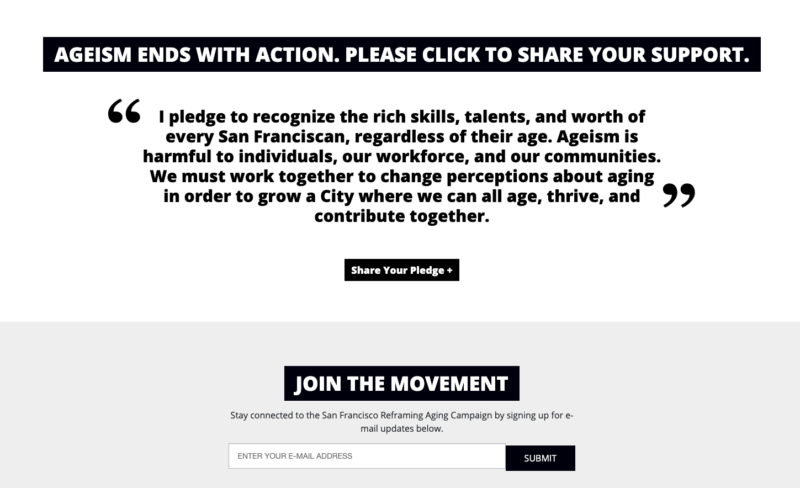
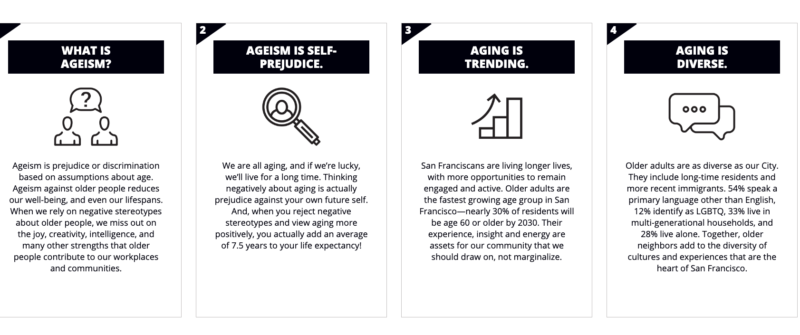
The three-story building hosts some 50 activities a week and is home to classrooms, exercise machines, a computer lab, and a half-acre garden where the planter boxes are elevated so older adults can tend the vegetables and flowers without having to bend down.
Acceptance is hard, even for those who are older
A list of the services available to older San Franciscans would fill many pages. But many people who would benefit never avail themselves. Sometimes that’s because they are simply not aware. But there’s another less obvious and more difficult barrier that service providers must overcome to connect with older San Franciscans:
“So many people who could benefit from services don’t because they say, ‘I’m not old,’” says Kate Kuckro, deputy director of the Community Living Campaign. Its focus is on community-building and empowerment to enable older adults and people with disabilities to age and thrive in San Francisco.
Asked if he thinks of himself as old, O’Brien, the Noe Valley hairdresser, thinks for a minute and says: “No, I don’t. Except on my birthday,” he adds with a grin. Like many San Franciscans, old and young, finding affordable housing is extremely difficult for him. O’Brien looked at senior housing but was turned off: “All those walkers and wheelchairs. Not for me.” What would be more suitable? “A mixture of old and young,” he says.
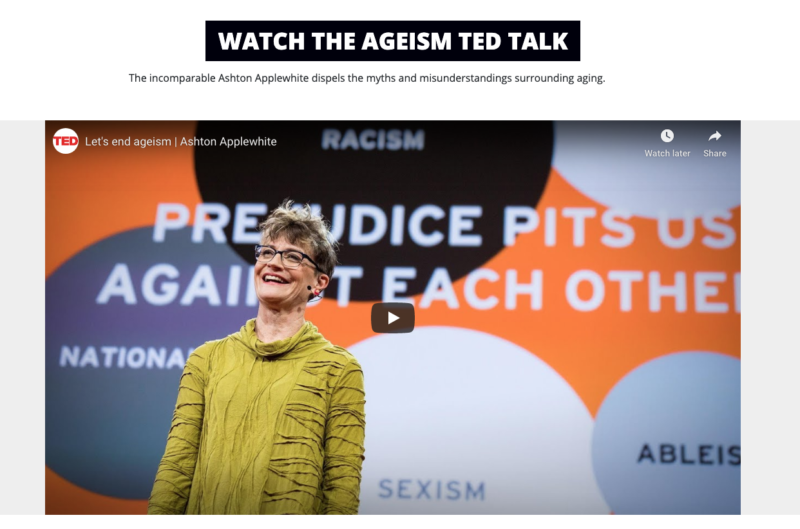
Susie Tyner doesn’t think of herself as old either, and she bridles at the suggestion that older adults aren’t seen as beautiful by society or by themselves. “How old do you have to be not to be beautiful?” she asks. “What’s the age limit on beauty?”
Tyner mentions a friend who comes to activities at the George W. Davis Senior Center. “She’s 103. But you’d never know it to look at her. She still wears her makeup. And she is beautiful.”



